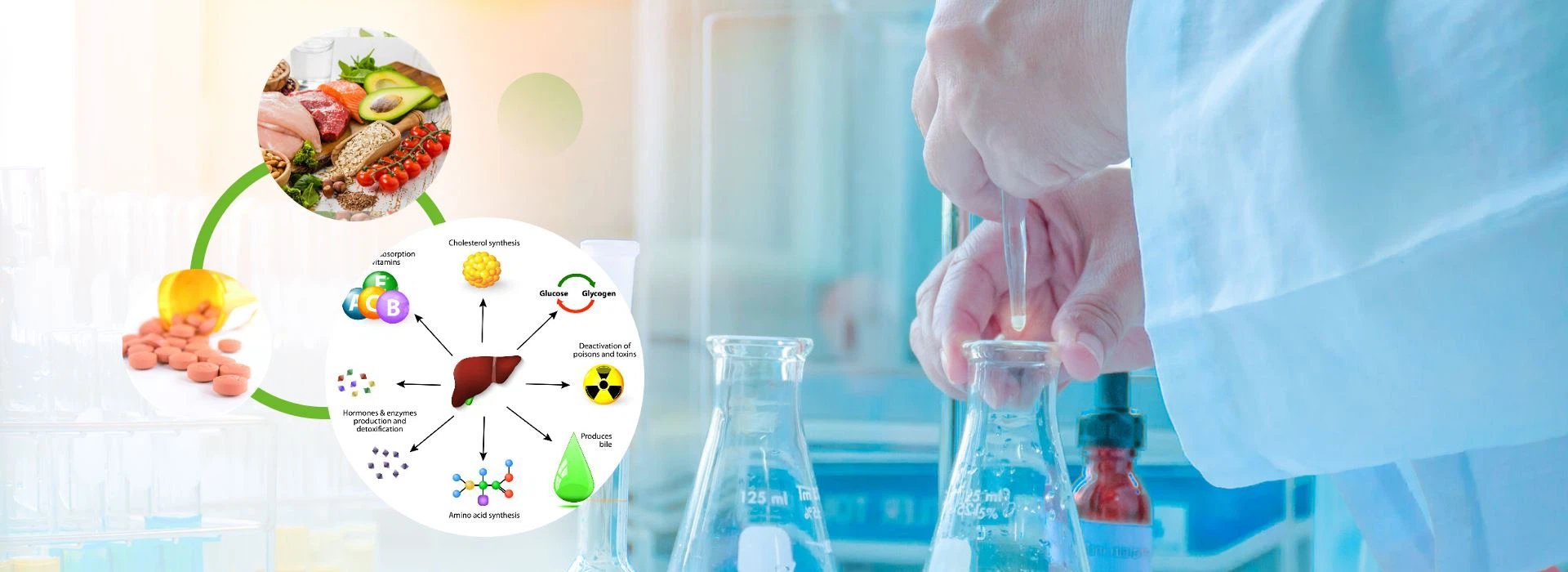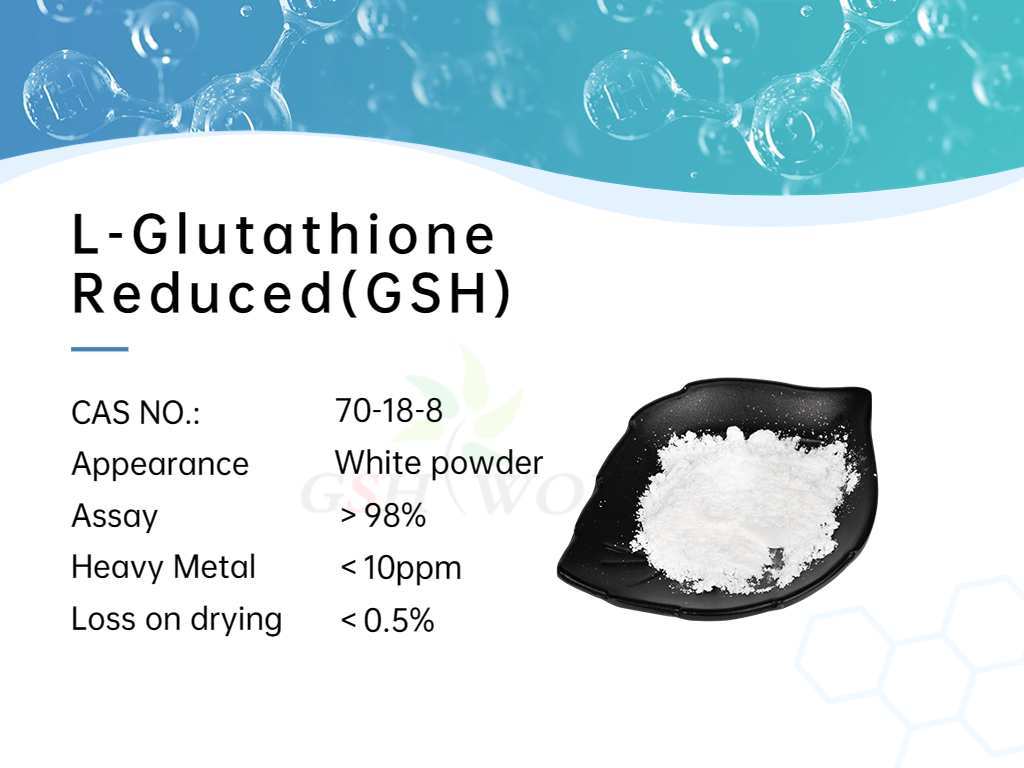
Jun 12, 2023 / Author: China Glutathione suppliers & NMN manufacturers
Glutathione is the most common non-protein thiol in mammalian cells and the most abundant natural active peptide in eukaryotic cells. It is composed of glutamic acid, cysteine and glycine and has important physiological functions.
Glutathione is widely distributed, with the highest concentration in liver cells; in plasma, it is at a low level due to its rapid catabolism; in cells, 80% to 85% of glutathione is distributed in the cytoplasm, and 10% to 15% is located in the mitochondria , a small part exists in the endoplasmic reticulum, nucleus and other organelles.
There are two forms of glutathione, the reduced form (GSH) and the oxidized form (GSSG). Under physiological conditions, the reduced form mainly exists, accounting for more than 98% of the total glutathione.

The function of glutathione:
GSH has multiple functions in the human body. As an antioxidant and free radical scavenger, it maintains intracellular redox balance, defends against oxidative stress, and participates in various cell metabolisms. GSH maintains the integrity of the cell membrane by protecting the sulfhydryl group of the protein on the cell membrane in a reduced state; prevents hemoglobin from oxygen
It is transformed into methemoglobin to maintain the ability to transport oxygen normally. Regulate protein function and gene expression through thiol-disulfide exchange reaction; post-translational modification of protein through S-glutathionylation to prevent irreversible damage to intracellular proteins due to oxidative stress. Store cysteine through the γ-glutamyl cycle; participate in the regulation of mitochondrial permeability transition pore opening and closing through its antioxidant properties.
GSH also plays an important role in regulating cell cycle, cell proliferation, apoptosis and other cellular processes, and can regulate lymphocyte function and immune response.
GSH is also associated with resistance to ionizing radiation and resistance to drug-induced cytotoxicity. On the one hand, GSH combines with harmful substances through glutathione S-transferase (GST) to form a soluble and non-toxic GSH complex, and releases the complex to the extracellular space through multidrug resistance-related proteins, reducing its On the other hand, most antitumor drugs are converted into GSH complexes through GST and excreted outside the cells, resulting in a decrease in intracellular drug concentration and enhanced drug resistance of tumor cells.
Therefore, GSH can act as a resistance factor and increase the resistance to chemotherapy drugs. In addition, GSH metabolism can also alleviate the toxic and side effects caused by chemotherapy in patients with malignant tumors, and reduce the suffering of patients.
Supplier Introduction: China glutathione supplier and NMN manufacturer GSHworld, the company mainly develops biotechnology and industrialization. As a global pioneer in enzymatic catalytic ATP regeneration technology, our company advocates green production and is committed to providing customers with better and more environmentally friendly products and services. Glutathione Manufacturer,NMN Factory,Citicoline Sodium supplier,China NMN manufacturers
PREVIOUS:Multiple functions of β-NMN
+86-755-23577295
+86 18718790084
Room 832, Building 12, Shenzhen Bay Science and Technology Ecological Park, Yuehai Street, Nanshan District, Shenzhen China